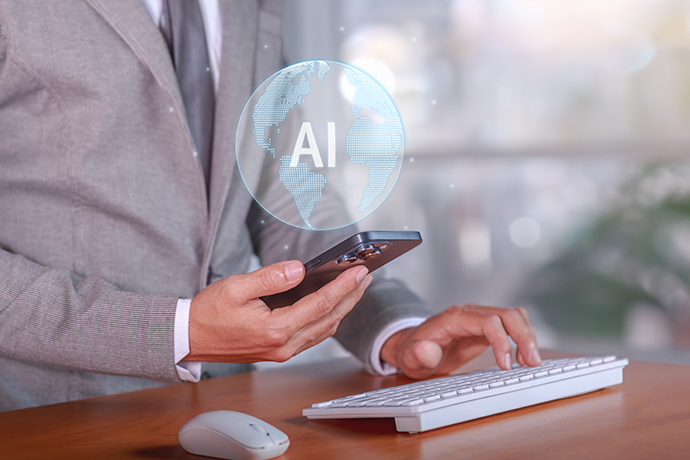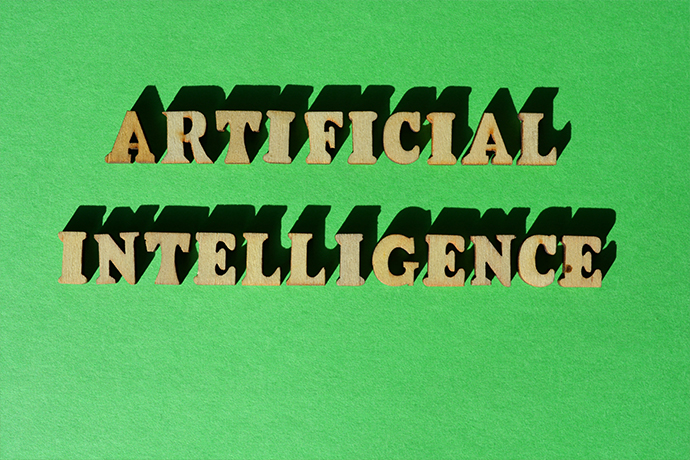 SPEAKERS
SPEAKERS
 TOPICS
TOPICS
Discover the transformative power of artificial intelligence examples in business. Explore how companies harness AI to innovate and thrive in today's competitive landscape.

Artificial Intelligence (AI) is transforming how companies operate - enhancing efficiency, accuracy, and strategic decision-making. It’s no longer just a concept of the future; it's a critical part of today’s business environment.
Still, many ask: What is artificial intelligence in business? In simple terms, it involves using machine learning algorithms, data analysis, and intelligent automation tools to solve problems, streamline processes, and deliver value. AI can analyze large datasets, learn from patterns, and adapt to changes faster than any human workforce.
To understand its impact, we first need to define what is AI in business. AI refers to the application of artificial intelligence technologies—such as predictive analytics, natural language processing, and autonomous systems—in corporate environments.
These tools support decision-making, enhance productivity, and offer a competitive advantage. For example, AI helps companies detect fraud, forecast demand, and deliver personalized customer experiences.
Learning more from industry professionals, especially experienced AI speakers, can offer a deeper understanding of how this technology shapes corporate strategies.

Across industries, businesses are increasingly asking, how is AI used in business? The applications are incredibly diverse:
AI powers chatbots that manage customer service around the clock, improving satisfaction while cutting operational costs. These AI systems understand language, interpret intent, and provide immediate responses.
Retailers utilize AI to analyze shopping behavior and suggest personalized products. This isn’t just innovation; it’s a strategic tool for driving revenue.
AI is also central to HR departments. Resume screening, candidate ranking, and predictive attrition models are helping HR professionals work smarter. These insights allow recruiters to make data-driven decisions.
You can find more real-world insights by following discussions led by top minds in the future of work space.
Let’s now explore a few real-world artificial intelligence examples in business that highlight the technology’s versatility:
These examples answer the question, how do businesses use artificial intelligence to stay competitive in today’s increasingly crowded markets.
Many executives wonder how to gain a strategic edge through AI. The answer lies in using AI not just to optimize operations but also to reinvent value chains.
AI tools help organizations enhance productivity while reducing error rates. In manufacturing, predictive maintenance prevents costly downtime. In finance, risk scoring models minimize credit losses.
The benefits extend into product development, too. AI analyzes customer feedback to help design better offerings faster. It also plays a key role in inventory and supply chain optimization.
To explore such strategies, it’s worth listening to visionaries like Aric Dromi, who challenges conventional thinking and offers futuristic perspectives on business innovation.
Contrary to fears of job loss, AI often augments human capability rather than replacing it. Automation frees employees from repetitive tasks so they can focus on creativity, strategy, and customer relationships.
This shift creates a new demand for hybrid skill sets. Businesses must rethink their workforce models and prepare employees for AI-augmented roles.
Anton Musgrave often speaks on this intersection between exponential technologies and human adaptability. His insights help organizations navigate this complex transformation.
Leaders aiming to build future-ready teams can benefit greatly from the guidance of seasoned business speakers.
As companies embrace AI, thought leaders play a pivotal role in interpreting trends and setting strategic direction. Christian Baudis, a former Google executive and digital futurist, offers valuable case studies on how AI drives digital growth.
On the product side, Daphne Costa Lopes specializes in using AI to improve customer journeys and build smarter product ecosystems.
These experts are helping companies answer the crucial question: not just what is AI in business, but what kind of business do you want to become with AI?

Integrating AI into your business doesn’t happen overnight. It requires vision, investment, and the right partners. Here’s how to begin:
Taking these steps ensures you not only adopt AI but also use it in a way that delivers measurable, sustainable value.
Artificial intelligence is already redefining how companies operate. From customer support to logistics, AI enables smarter, faster, and more personalized business decisions. As you’ve seen through these examples of artificial intelligence in business, its impact spans every industry.
Businesses that embrace AI today are positioning themselves to lead tomorrow. They’re asking the right questions: how do businesses use artificial intelligence successfully? What data do we need? How can AI empower—not replace—our people?
To stay ahead of the curve, follow leading voices in the industry and connect with visionary AI speakers. In a world that rewards innovation, those who move first—and move smart—will shape the future of business. As AI technologies evolve, making strategic decisions and increasing efficiency in the business world will become easier than ever before.